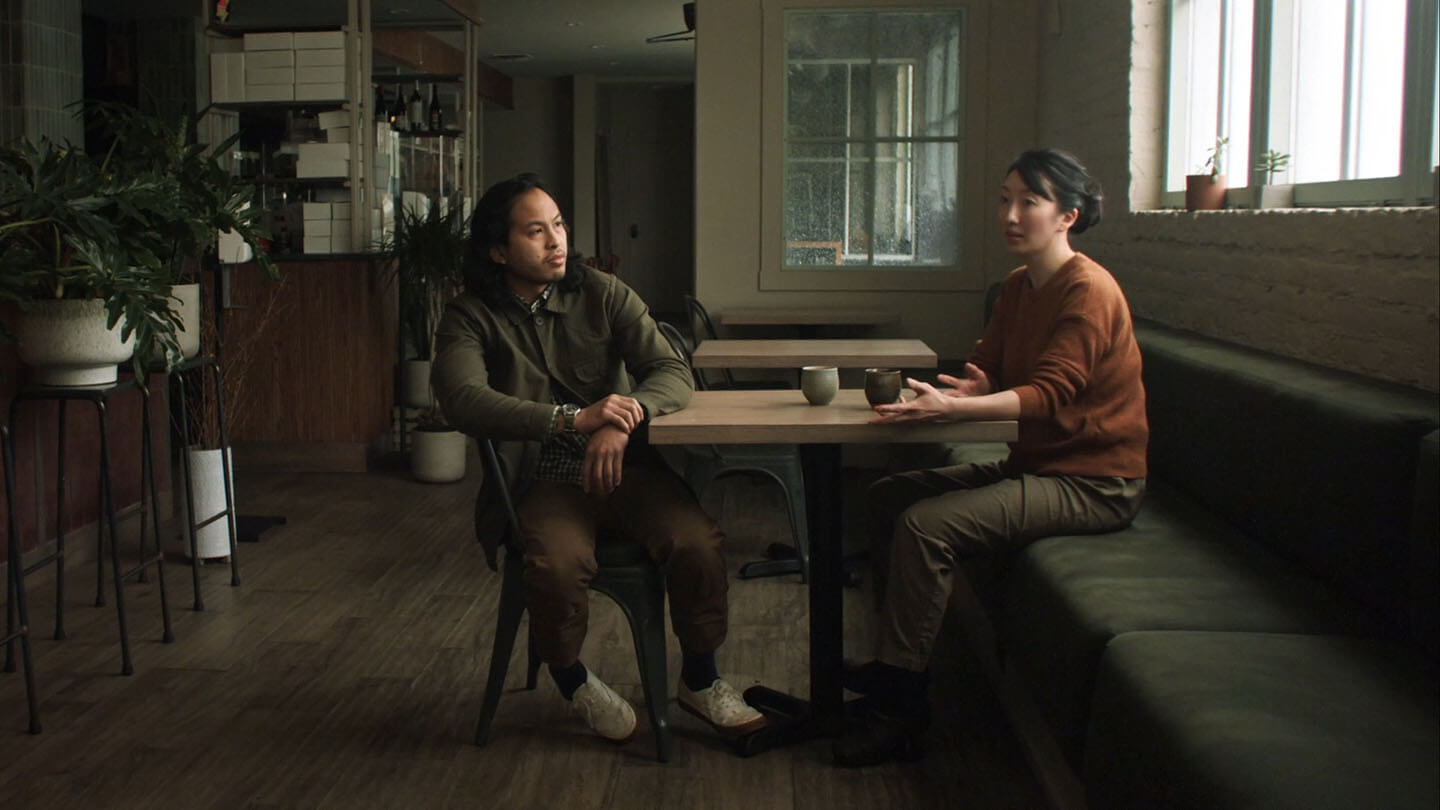Nick Cavalier’s culinary documentary Kasama is a sumptuous 17-minute story of how the eponymous Chicago-based restaurant came into being, struggled through COVID-19 lockdowns, and a menu flavoured with immigrant heritage. As its subjects are Tim Flores the chef and Genie Kwon the baker, couple and co-founders.
The subjects are shot with languid natural lighting; the film saves a comprehensive view of the restaurant until later in the film. Until then, it uses its time to paint the portraits of its founders. The restaurant is them. Two points make the documentary pertinent. First, the lockdown’s impact on the restaurant, and the second, the upsurge in interest in (and thus, market for) Asian cuisine. Kasama the restaurant serves Filippino and Filippino-based cuisine. The recipes are, from a cultural standpoint, variable, and thus many of the offerings at Kasama are based on the recipes of Flores’s mother, Lolly Quintoriano Flores.
A lot of the history is recounted to the accompaniment of old photographs. The older the photos, the stronger the impactful presence of nostalgia and memory. The subject of family is especially important here, with both Flores and Kwon being children of first-generation immigrants. The legacy of that first gamble and all the adversity it entails even in the best scenarios carries over into the decision-making of the children. Flores recounts the uncertainty that plagued him as late as opening day. Kwon speaks directly of her parents’ courage and uncertainty in her capacity to do something like that. The perceived inaccessibility of their parents’ history and capacity feels keenly specific to their lives as second-generation immigrants.
Once the film reaches its COVID-19 sequence, the frames immediately become lonelier, desolation touched with desperation. The scene shifts from restaurant to home (though, with their residence atop the restaurant, the difference is perhaps less drastic), with the news of rising deaths on TV. Just like that, they find themselves testing out the same muscles as their parents: doing what needs to be done because no other option is available. Kwon’s mother, whose voice over a phone call has been the substitute for physical presence, talks about the impact of having grown up at a time of war. The hardships, in broad-strokes, do not feel so inaccessible in juxtaposition to the struggle of Kwon, Flores, and countless others like them. Indeed, as the film shows sitting stock and packaging materials and Flores recounts the danger of keeping operations running amidst COVID, the scene is widely resonant and deeply familiar.
The film returns to scenes of cooking to signal the end of lockdowns. The voiceover intermittently takes a backseat for the viewer’s attention as ingredients are prepared with deliberate precision. Dish after dish is prepared and plated, captions detailing the name and ingredients accompanied by grand swells of the score.
In quintessential Asian fashion, the seal of approval comes from the parents in the film’s penultimate scene: Flores’s parents admire the work of the couple with affection. The final note comes from Kwon about their hopes for their work just as the film concludes with the end of a workday. With all the perseverance and luck the film has shown them to have, one knows the door will open the following morning.
Watch Kasama Documentary Film
Kasama: Documenting Food through Struggle and Comfort
-
Direction
-
Cinematography
-
Screenplay
-
Editing
-
Music
